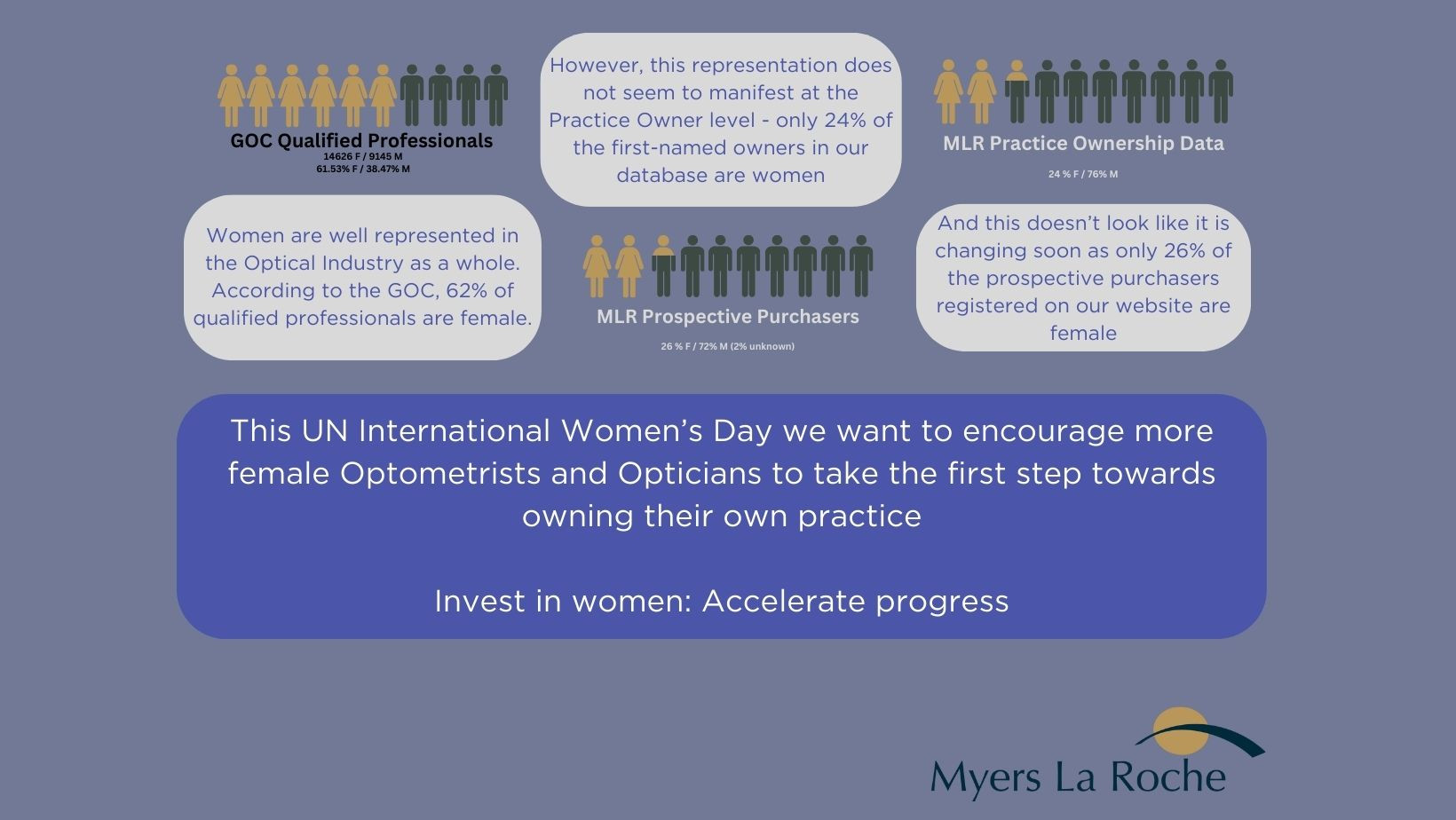Many high streets are being decimated. Retail as we know it is dying.
Take a good look at your practice location. Unless you are very fortunate, it is likely that the evidence is all around you – or at least creeping towards you - in the form of boarded up units, ‘To Let’ signs and a proliferation of charity shops.
Thankfully optical practices – with their unique blend of healthcare service, provision of medical devices and fashion and lifestyle elements – are significantly better insulated from the paradigm shift in consumer behaviour than most of their neighbours.
But where is your local high street heading? Is there a chance of you eventually becoming one of the last quality traders standing? Could your store become a retail ‘island’ or at least part of a retail archipelago surrounded by a vast empty ocean? For some, this is a genuinely realistic scenario.
For others it may not be quite so extreme, but this does not mean you can afford to be complacent.
The changing landscape around you needs to be understood, monitored and your property strategy adapted to suit. If trading conditions on the high street where your practice is located deteriorate and devolve, the proactive practice owner needs to evolve.
WHAT IS HAPPENING?
The decline of the great British high-street started in earnest around two decades ago and has continued its relentless progress year after year, with the financial crisis, the Covid-19 lockdowns and economic fallout, and the cost of living crisis accelerating the process.
The underlying cause is that most consumers have now become comfortable with the convenience of transacting online. Shopping, banking and a whole range of other activities that historically took place on the nation’s high streets now take place electronically. In a host of sectors - primary positioning for ‘shop windows’ is now on Google or Amazon, rather than in a town or city centre.
AN UNFAIR PLAYING FIELD FOR BUSINESS OWNERS OPERATING RETAIL PREMISES
The problems for high street retailers have been compounded by the UK tax system failing to keep up. Traditional retailers have had to continue to operate under an archaic rates system and a practice of upward-only rent reviews based on floor space, not turnover.
Likewise, bricks and mortar business have to pay significant corporation tax during the profitable parts of the economic cycle, making it hard to build cash reserves to help them ride out the more challenging times. In contrast Google and Amazon are able to play an offshore tax avoidance game – and the pure online retailers using their platforms have significantly lower fixed property costs.
Rather than take a pragmatic view to support their tenants, many landlords have remained inflexible and immovable. Institutional landlords in particular have desperately sought to avoid crystallising losses in their portfolios.
SO WHERE IS THIS PROCESS LEADING AND WHAT IS DOES THE FUTURE HOLD FOR YOUR PRACTICE LOCATION?
The fate of the high-street is at a watershed moment and the ultimate outcome is far from certain. Much depends upon Government policy. To date, most Whitehall initiatives have been grants for physical improvements to buildings and the occasional temporary rates reduction measure (there was also an amnesty on commercial tenant evictions during the Covid crisis.)
Whilst any support for the high street is welcome, these type of measures are mere sticking plasters, akin to temporarily resuscitating a terminally ill patient.
The key to tackling the inequality problem and levelling the playing field between bricks and mortar and online retail is 3-fold:
- The government needs to undertake a major overhaul of the business rates system
- The government needs to impose some form of new taxation for online retailers, based on transactions or turnover rather than profit to level the playing field.
- Rents need to come down in line with the reduced footfall/reduced value of being located in many high street locations. Anecdotally, we are increasingly experiencing market forces finally manifesting themselves in the form of lower high street rentals and greater flexibility/less onerous tenant responsibilities.
One thing remains clear, there has been a paradigm shift in consumer shopping habits, and high streets are never likely to go back to the way they used to be. When the government finally takes the bull by the horns and puts in place the radical reforms required, there is still likely to be a surplus of retail space available in our town centres.
Mindful of this, the government has proposed sweeping reforms to the planning system to allow vacant buildings in town centres to be converted for residential use. Under these proposed new rules, existing commercial properties, including newly vacant shops, can be converted into residential housing more easily.
This initiative is designed to support the construction industry, speed up rebuilding and to breathe new life into these declining areas. These measures will be disruptive to neighbouring premises in the short-term, but will add new local footfall and demand for the remaining commercial enterprises.
THE SPECIFICS OF YOUR LOCATION
It is important to understand that it is not a single playing field. If you take a walk through a selection of the UK’s high-streets and shopping centres, you will discover that some are faring considerably better than others. The reasons behind this are complex, but key factors include:
- Proximity to major regional out of Town Shopping Centres
- Ease of transport and access i.e. road, rail, trams and availability of free or cheap parking
- Level of affluence – retail areas with wealthy catchment populations are typically faring better. In more wealthy areas, consumers can afford to make decisions based on perceived ‘value’ rather than purely on price. As a result, they will often prefer to ‘shop local’ and will actively seek out more expensive ‘exclusive’ independent retailers who provide a better quality product or service and crucially a better overall experience.
- Regional, historic centres that draw from a wider catchment population and offer a wider cultural ‘experience’ and may be less affected than average ‘functional’ town centres.
EVOLVING YOUR PROPERTY STRATEGY IN LINE WITH THE CHANGING RETAIL LANDSCAPE
Evolving high streets require practice owners to thoroughly review their strategies in relation to their properties.
Your immediate options as a tenant mostly depend upon how long you are tied into your current lease, but make no mistake, the balance of power has changed. In almost all locations, the upper hand has moved from landlord to tenant.
It is therefore imperative that your approach and tone to dealing with your landlord reflect the new landscape.
The default position for many owners, when their lease is up for renewal should be to start off with the mind-set that they are prepared to relocate unless the new terms offered reflect the reality of the current high street trading environment. [Your practice may be thriving, but this does not mean you should be passive and accept suboptimal terms, you need to protect yourself and get the best deal you can, just like everyone else.]
The tables below illustrates the cost implications and other potential benefits of being prepared to relocate – and using the leverage of a better deal elsewhere to potentially obtain a better deal in situ.
Ultimately this is a simplified example and other factors such as repairing obligations / dilapidations implications also need to be factored into your strategy and approach to negotiations with your existing landlord. Some of our recent clients have managed to negotiate with the landlord and to get them to pay for repairs that were technically the tenant’s responsibility, in return for remaining in situ.
If your practice is in a quieter part of the town – or the surrounding area is becoming shabby, or something of a retail desert - it may be prudent to move to a more central, upmarket location.
To succeed in the long-term, visibility and footfall are still important for most practices. With high numbers of empty units in all parts of most towns, rents are coming down and there are considerable concessions available, including rent free and additional half-rent periods. Find out what is available and do the maths. It may be possible to fund much of the cost of the move and a new shop-fit by negotiating such ‘signing on’ concessions.
Even if your location is still right for you – you should still be able to benefit from:
- A 3rd party acting for you in the negotiations will help to depersonalise the discussions and allow you to take a firmer stance.
- All of the benefits being offered to you for relocating to a new unit such as rent free periods and lower rentals.
- A stronger hand to allow you to remove any personal liability, de-risk and ensure greater future flexibility - use the opportunity to move your lease from your personal name into a Limited Company, or to remove any personal guarantees, look to insert several tenant-only break clauses into any new lease.
- Use the opportunity to negotiate on dilapidations and repairing obligations
- Improve payment terms to ease business cash flow for example change from a “quarterly” rental in advance to” monthly” in advance
- Add a ‘’pandemic clause" that suspends rental payments during any future lockdowns ordered by the government
As already stated – start with a genuine fall-back position of being prepared to move. In other words don’t negotiate exclusively with your existing landlord – have a plan B and a plan C negotiation on an alternative unit ongoing. Just as when it comes to selling your practice – use the power of competition to your advantage – it will make a massive difference to the deal you will ultimately be able to secure.
BOLDER PROPERTY STRATEGIES
Proactive, ambitious practice owners with limited existing space may be able to improve their customer experience and grow their business by acquiring and knocking through a neighbouring unit on favourable terms.
- Many practice owners with good relationships with private landlords have managed to negotiate discretionary rent reductions to help them through the difficult times. During the 2008-2009 recession many of our more proactive clients were able to negotiate discretionary rent reductions. The state of high streets are now significantly worse and early evidence this time around is of significant long-term rent reductions.
- Use the opportunity to purchase the freehold you occupy (or another suitable one). Do the maths and weigh up the cash flow/cost implications compared with renting. However, be mindful that given the demise of high street occupancy rates, the appreciation in value that historically was a given may be less forthcoming.
- If you own your own freehold, review and monitor the value of your asset and the underlying open market rental value. This may affect your retirement planning.
- Research whether you qualify for any grant schemes towards improvements.
OTHER CONSIDERATIONS: THE EVOLVING HIGH STREET REQUIRES A CHANGE TO YOUR MARKETING
For many towns footfall is destined to fall, as the high street continues to decline. In other words, if less potential new patients are going to be walking down your high street because the high street has less to offer and becomes less appealing, you have to BECOME the destination.
It therefore makes sense to reinvest any savings in property costs you can achieve to ensure footfall is attracted to you via other means. Depending upon your practices offering and operating model, this can be approached in a number of different ways. This is a whole topic in itself, warranting its own individual resource.
We talk more about changes in operating models in Megatrend 3
More insights for you
Take a read below for further industry insights written by our Myers La Roche team:
Get in Touch
If you are interested in our services, then please call us on the number below:














